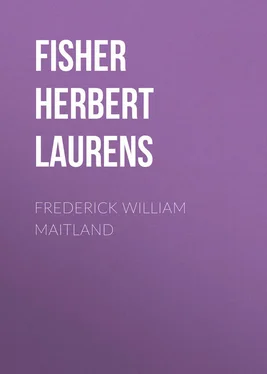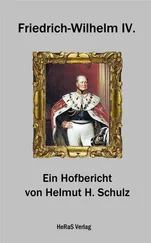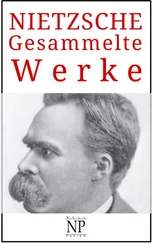Herbert Fisher - Frederick William Maitland
Здесь есть возможность читать онлайн «Herbert Fisher - Frederick William Maitland» — ознакомительный отрывок электронной книги совершенно бесплатно, а после прочтения отрывка купить полную версию. В некоторых случаях можно слушать аудио, скачать через торрент в формате fb2 и присутствует краткое содержание. Жанр: foreign_antique, foreign_prose, на английском языке. Описание произведения, (предисловие) а так же отзывы посетителей доступны на портале библиотеки ЛибКат.
- Название:Frederick William Maitland
- Автор:
- Жанр:
- Год:неизвестен
- ISBN:нет данных
- Рейтинг книги:4 / 5. Голосов: 1
-
Избранное:Добавить в избранное
- Отзывы:
-
Ваша оценка:
- 80
- 1
- 2
- 3
- 4
- 5
Frederick William Maitland: краткое содержание, описание и аннотация
Предлагаем к чтению аннотацию, описание, краткое содержание или предисловие (зависит от того, что написал сам автор книги «Frederick William Maitland»). Если вы не нашли необходимую информацию о книге — напишите в комментариях, мы постараемся отыскать её.
Frederick William Maitland — читать онлайн ознакомительный отрывок
Ниже представлен текст книги, разбитый по страницам. Система сохранения места последней прочитанной страницы, позволяет с удобством читать онлайн бесплатно книгу «Frederick William Maitland», без необходимости каждый раз заново искать на чём Вы остановились. Поставьте закладку, и сможете в любой момент перейти на страницу, на которой закончили чтение.
Интервал:
Закладка:
That by the natural workings of his enthusiastic genius Maitland would have been drawn to history whatever might have been the outward circumstances of his career, is as certain as anything can be in the realm of psychological conjecture. Men of the ordinary fibre are confronted by alternatives which are all the more real and painful by reason of their essential indifference. This career is open to them or that career, and they can adapt themselves with equal comfort to either. But the man of genius follows his star. His life acquires a unity of purpose which stands out in contrast to the confused and blurred strivings of lesser men. Other things he might do, other tastes he might gratify; but there is one thing that he can do supremely well, one taste which becomes a passion, which swallows up all other impulses, and for which he is prepared to sacrifice money and health and the pleasures of society and many other things which are prized among men.
When Maitland stood for the Trinity Fellowship he was already aware that success at the bar would mean the surrender of the reading which had "become very dear" to him, and yet his ambition desired success of one kind or another. The varied humours of his profession pleased him; he loved the law and all its ways; yet it is difficult to believe that the routine of a prosperous equity business would ever have satisfied so comprehensive and enquiring a mind. The young barrister had a soul for something beyond drafts; he lectured on political economy and political philosophy in manufacturing towns and in London 11 11 An account of Maitland's "valuable" lectures "On the Cause of High and Low Wages," given to an average class of some twenty workmen in the Artizan's Institute, Upper St Martin's Lane, in 1874, and "followed by a very useful discussion in which the students asked and Mr Maitland answered many knotty questions" may be read in H. Solly, These Eighty Years , vol. II. p. 440.
, wrote for the Pall Mall Gazette , then a liberal evening paper under the direction of Mr John Morley; but more and more he was drawn to feel the fascination and importance of legal history. Two friends helped to determine his course. Mr, now Sir Frederick, Pollock had preceded Maitland by six years at Eton and Trinity and was also a member of Lincoln's Inn. Coming of a famous legal family, and himself already rising to distinction as a scientific lawyer, Mr Pollock appreciated both the value of English legal history and the neglect into which it had been allowed to fall. He sought out Maitland and a friendship was formed between the two men which lasted in unbroken intimacy and frequent intellectual communion to the end. An historical note on the classification of the Forms of Personal Action, contributed to his friend's book on the Law of Torts , was the first overt evidence of the alliance.
The other friend was a Russian. Professor Paul Vinogradoff, of Moscow, who had received his historical education in Mommsen's Seminar in Berlin, happened in 1884 to be paying a visit in England. The Russian scholar, his superb instinct for history fortified by the advantages of a system of training such as no British University could offer, had, in a brief visit to London, learnt something about the resources of our Public Record Office which was hidden from the Inns of Court and from the lecture rooms of Oxford and Cambridge. On January 20, Maitland and Vinogradoff chanced to meet upon one of Leslie Stephen's Sunday tramps, concerning which there will be some words hereafter, and at once discovered a communion of tastes. The two men found that they were working side by side and brushing one another in their researches. Correspondence followed of a learned kind; then on Sunday, May 11, there was a decisive meeting at Oxford. The day was fine and the two scholars strolled into the Parks, and lying full length on the grass took up the thread of their historical discourse. Maitland has spoken to me of that Sunday talk; how from the lips of a foreigner he first received a full consciousness of that matchless collection of documents for the legal and social history of the middle ages, which England had continuously preserved and consistently neglected, of an unbroken stream of authentic testimony flowing for seven hundred years, of tons of plea-rolls from which it would be possible to restore an image of long-vanished life with a degree of fidelity which could never be won from chronicles and professed histories. His vivid mind was instantly made up: on the following day he returned to London, drove to the Record Office, and being a Gloucestershire man and the inheritor of some pleasant acres in that fruitful shire asked for the earliest plea-roll of the County of Gloucester. He was supplied with a roll for the year 1221, and without any formal training in paleography proceeded to puzzle it out and to transcribe it.
The Pleas of the Crown for the County of Gloucester which appeared in 1884 with a dedication to Paul Vinogradoff is a slim and outwardly insignificant volume; but it marks an epoch in the history of history. "What is here transcribed," observes the editor, "is so much of the record of the Gloucestershire eyre of 1221 as relates to pleas of the Crown. Perhaps it may be welcome, not only to some students of English law, but also (if such a distinction be maintainable) to some students of English history. It is a picture, or rather, since little imaginative art went to its making, a photograph of English life as it was early in the thirteenth century, and a photograph taken from a point of view at which chroniclers too seldom place themselves. What is there visible in the foreground is crime, and crime of a vulgar kind – murder and rape and robbery. This would be worth seeing even were there no more to be seen, for crime is a fact of which history must take note; but the political life of England is in a near background. We have here, as it were, a section of the body politic which shows just those most vital parts, of which, because they were deep-seated, the soul politic was hardly conscious, the system of local government and police, the organization of county, hundred, and township."
It was the publication of a new and fundamental type of authority accomplished with affectionate and exquisite diligence by a scholar who had a keen eye for the large issues as well as for the minutiæ of the text. And it came at a timely moment. Sir James Fitzjames Stephen's History of Criminal Law had recently appeared and Maitland has written of it in terms of genuine admiration; but remarkable as those volumes undoubtedly were, miraculous even, if regard be paid to the competing claims upon the author's powers, they did not pretend to extend the boundaries of medieval knowledge. The task of making discoveries in the field of English legal antiquity, of utilizing the material which had been brought to light by the Record Commission appeared to have devolved upon Germans and Americans. All the really important books were foreign – Brunner's Schwurgerichte , Bigelow's Placita Anglo-Normannica and History of Procedure in England , the Harvard Essays on Anglo-Saxon Law , Holmes' brilliant volume on the Common Law . Of one great name indeed England could boast. Sir Henry Maine's luminous and comprehensive genius had drawn from the evidence of early law a number of brilliant and fascinating conclusions respecting the life and development of primitive society, and had applied an intellectual impulse which made itself felt in every branch of serious historical enquiry. But the very seductions of Maine's method, the breadth of treatment, the all-prevailing atmosphere of nimble speculation, the copious use of analogy and comparison, the finish and elasticity of the style were likely to lead to ambitious and ill-founded imitations. It is so pleasant to build theories; so painful to discover facts. Maitland was strong enough to resist the temptation to premature theorizing about the beginnings of human society. As an undergraduate he had seen that simplicity had been the great enemy of English Political Philosophy; and as a mature student he came to discover how confused and indistinct were the thoughts of our forefathers, and how complex their social arrangements. What those thoughts and arrangements were he determined to discover, by exploring the sources published and unpublished for English legal history. He knew exactly what required to be done, and gallantly faced long hours of unremunerative drudgery in the sure and exultant faith that the end was worth the labour. "Everything which he touched turned to gold." He took up task after task, never resting, never hasting, and each task was done in the right way and in the right order. The study of English legal history was revolutionised by his toil.
Читать дальшеИнтервал:
Закладка:
Похожие книги на «Frederick William Maitland»
Представляем Вашему вниманию похожие книги на «Frederick William Maitland» списком для выбора. Мы отобрали схожую по названию и смыслу литературу в надежде предоставить читателям больше вариантов отыскать новые, интересные, ещё непрочитанные произведения.
Обсуждение, отзывы о книге «Frederick William Maitland» и просто собственные мнения читателей. Оставьте ваши комментарии, напишите, что Вы думаете о произведении, его смысле или главных героях. Укажите что конкретно понравилось, а что нет, и почему Вы так считаете.












